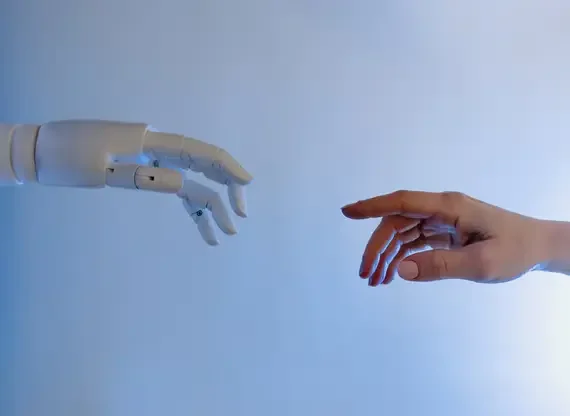
November 11, 2021
“I think the biggest innovations of the 21st century will be at the intersection of biology and technology. A new era is beginning” is what the great visionary, Steve Jobs, said when asked about where the world was going about a decade ago.
Artificial intelligence is no longer just a buzzword, it is now an era-defining reality that is continuously shaping our digital interactions. But what about utilizing the potential of AI in extremely critical fields like medicine and healthcare. Well, AI is already being used in healthcare apps to take care of tasks that can be handled by machines. From diagnostics to medical research to fast-paced clinical trials, AI is being seen as the new promise for medicine.
Medical artificial intelligence is a very feasible hope with too much to offer and can revolutionize healthcare. Here, through the length of this post, we are going to explore artificial intelligence and its converging trends in digital health.
The text-book definition of Artificial Intelligence is that it is a computer-based system designed to solve a specific problem, which is capable of working in real time, learn from experience and act for the purpose of achieving a predefined outcome.
In theory, AI is designed to mimic the human mind, however when you talk to AI scientists and experts in the business of AI technologies in health care, they hold AI responsible to a higher standard by defining it not based on its ability to perform tasks that typically require human intelligence, but by its ability to solve a problem or reach an outcome better than any one single human.
The oldest version of artificial intelligence also sometimes known as “dumb AI”. No memory and no ability to learn but reacts to current situations. An example of this type of AI is the IBM’s Deep Blue super chess player built in the 80ies.
Most of the AI applications and solutions that we see today including the healthcare industry fall under this bucket. This Limited Memory AI or algorithm will learn from past experiences, data sets, and events and then apply those sets of rules and learnings to future events. We can see examples of this type of AI in healthcare today such as cancer diagnostics AI algorithms, robotic machines used in various medical procedures, virtual administrative assistants like nursing assistants etc.
Machines will understand the needs and expectations of other humans and machines. Currently, there is no real Theory of Mind AI that exists. There are certain examples that are close and attempting to reach the evolution stage of Theory of Mind AI. These are Google’s Deep mind, Sophia by Hanson Robotics, and OpenAI Five.
This is the final evolution of AI that we’re nowhere near achieving. In this stage machines are fully aware of their existence and can make decisions on their own. The only place where such versions of AI exist today are in the movies and TV shows such as Westworld, Altered Carbon, or Pecard.
Digital Health has been around for about a decade now, and the industry has been on a constant rise with a lot of money being poured into it. According to CB insights, the majority of the deals and Unicorns within the industry fall into the following categories:
One of the converging trends in Digital Health is that in the US, the FDA, which is the body regulating new technologies in the healthcare space, particularly the ones that are leveraged in a medical setting or claim to have diagnostics or treatment properties, has been incredibly good at pushing through various AI solutions providing digital health outcomes. Over the last six years, we’ve seen over 50 FDA-approved AI digital health solutions. These solutions mostly fall into 3 categories:
AI enabled digital health solutions are also aiming at getting ahead of the disease by helping patients manage their conditions, find out more about their conditions, learn about them and then making an informed decision on when they should interact with the doctor.
An interesting data point by Cisco Report, shows that by 2022 there will be 28 billion connected sensors and by 2030, it’s estimated that number will be 500 billion, connecting all of us in a larger neural network. In various shapes or forms, health sensors will revolutionize how health data is collected, interpreted, and used to improve the quality of care for patients around the world. We are seeing many exciting innovations in healthcare made possible by AI such as invisible (or minimally visible) wearables, ingestible smart pills, fully immersive bionic limbs, and even AI doctors.
Advances in neural networks and other techniques promise to transform healthcare while raising profound questions about our bodies and society.
At Bayer G4A we are constantly looking for such companies developing digital health innovations that enable access to treatment and care for everyone in order to live longer, healthier lives. Find out more about our G4A Partnerships Program here.

Bharat Rachupalli